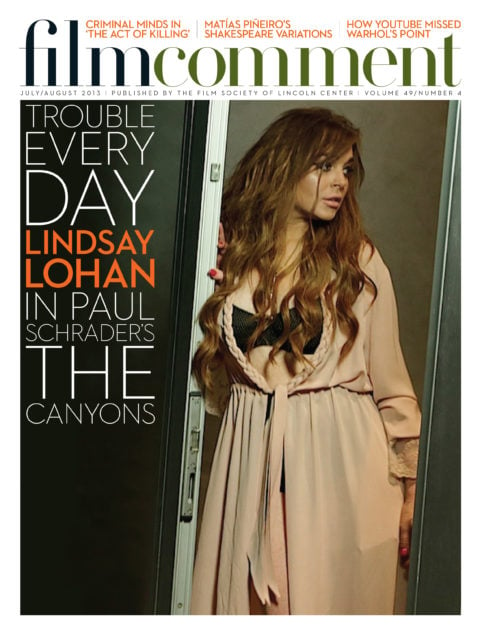
Miró l’altre
In Pere Portabella’s short Lectura Brossa (03), avant-garde Catalan poet Joan Brossa describes himself as an “inventor of strategies” and an “unsubmissive opponent of official culture”—two definitions that also well describe the role assumed by Portabella in the bosom of Spanish cinema. And if we’re talking about strategies, let’s invoke one more: cinema as a point of interaction between different artistic disciplines. It’s impossible to think of Portabella’s films without recalling his ongoing dialogue with poetry, painting, music, or architecture. In fact, the cinéaste started down his unique path in the “post-cinema” of the late Sixties, long before the interdisciplinary concept took hold in museums all over the world.
Portabella’s work takes the form of a modernist exploration of artistic reinterpretation. In the short Acció Santos (73), a prelude by Chopin is rewritten through the expressions that the piece awakens in the face of musician Carles Santos. Miró l’altre (69) records a Joan Miró mural being created and destroyed, illustrating the tension between the ephemeral and indelible nature of art. And in Vampir – Cuadecuc (70), the director’s most emblematic feature, Portabella fashions a silent and almost abstract parallel version of Jess Franco’s 1970 Count Dracula, by shooting behind the scenes during that film’s production: an act of pure cinematic vampirism. Each movie offers an example of Portabella’s hybrid approach, in order to elaborate a sensorial, lucid, and occasionally cryptic reflection on its own materiality.

Umbracle
It is an ambitious project that can now be fully appreciated thanks to the complete collection of Portabella’s works by Spanish DVD label Intermedio, which has gathered his six features and 16 shorts, made over a period of more than 40 years. His trajectory is marked by an avant-garde spirit, an interest in conceptual art, and a firm belief in the possibilities of a cinema “made politically,” that Godard called for.
All of this is present in his masterpiece, Umbracle (72): Portabella circumvented the censors to create a dazzling film collage about Franco’s Spain consisting of micro-narratives about military repression, found-footage government propaganda, interviews with scholars and specialists on clandestine cinema, and a scene in which Christopher Lee reads Poe’s The Raven, concluding his recitation with the telling word “Nevermore!”
Eight years later Portabella became a member of the first elected Catalan Parliament since the restoration of democracy. He is perhaps best understood as an individual and an artist committed to freedom on behalf of his nation and his audience, to which he continuously extends an invitation to complete the meaning of his enigmatic and sensual film objects.








